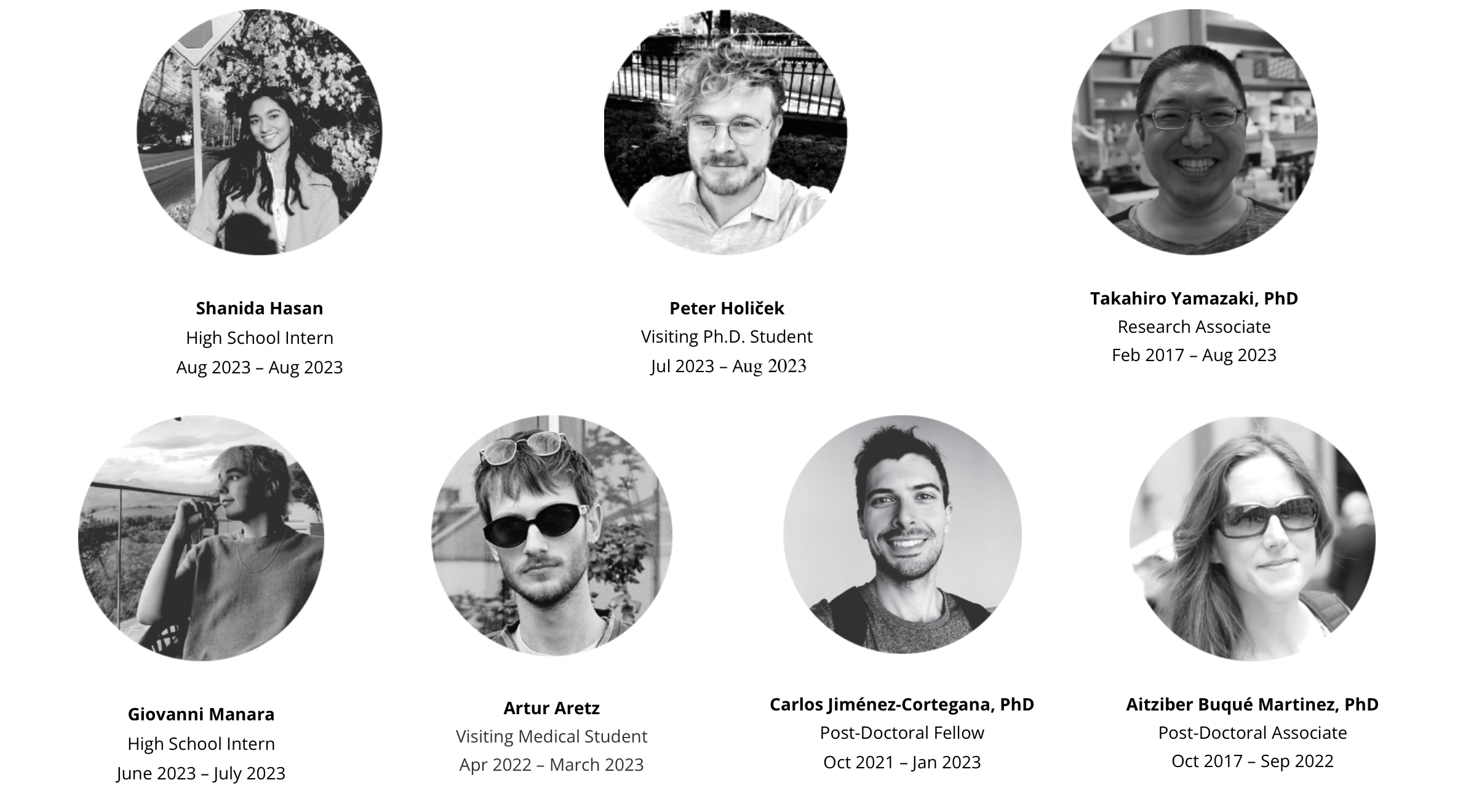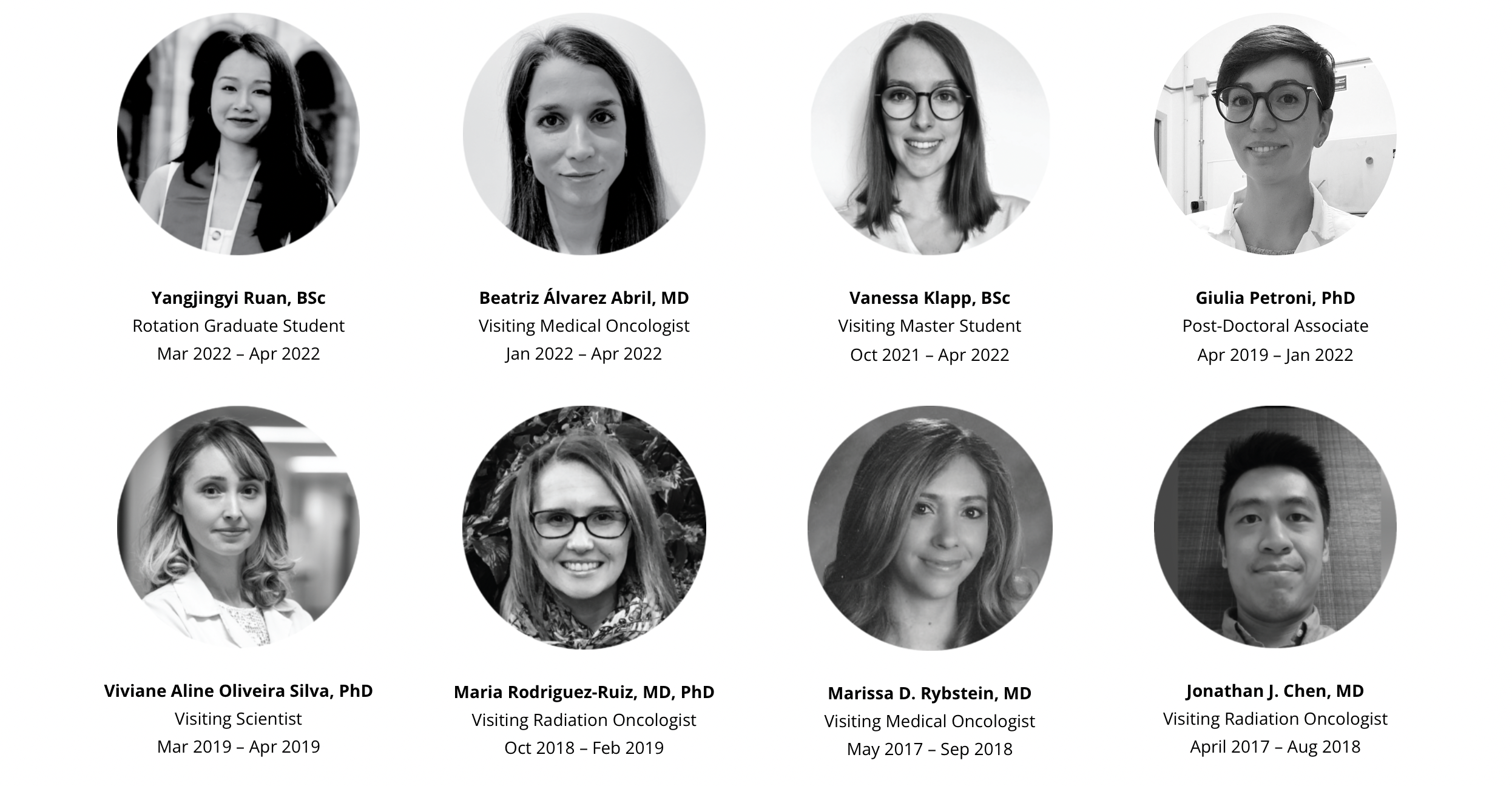The current interest of our team is to elucidate the links between cellular pathways of response to stress – including (but not limited to) autophagy, cellular senescence and multiple variants of regulated cell death – and the preservation of organismal homeostasis, with a particular focus on anticancer immunity. More specifically, we are interested in dissecting the complexity of the tumor microenvironment with respect to the mechanisms through which malignant as well as non-malignant components of the tumor exposed to chemotherapy, radiation therapy and immunotherapy emit danger signals that are involved in the initiation and perpetuation of robust immune responses. The detailed characterization of these molecular and cellular circuitries may identify stress-responsive mechanisms of adaptation in malignant or non-malignant cells as novel targets for the pharmacological manipulation of anticancer immune responses. Ultimately, these findings may translate into novel clinical studies based on combinatorial therapeutic regimens aimed at maximizing immunostimulation within the tumor microenvironment.
Members:
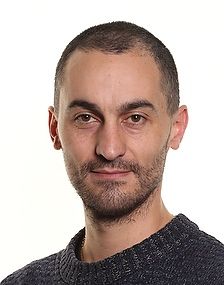
Lorenzo Galluzzi, PhD
Principal Investigator
Lorenzo Galluzzi (born 1980) is currently Assistant Professor of Cell Biology in Radiation Oncology with the Department of Radiation Oncology of the Weill Cornell Medical College (New York, NY, USA), Honorary Assistant Professor Adjunct with the Department of Dermatology of the Yale School of Medicine (New Haven, CT, USA), Honorary Associate Professor with the Faculty of Medicine of the University of Paris (Paris, France), and Faculty Member with the Graduate School of Biomedical Sciences and Biotechnology of the University of Ferrara (Ferrara, Italy), the Graduate School of Pharmacological Sciences of the University of Padova (Padova, Italy), and the Graduate School of Network Oncology and Precision Medicine of the University of Rome “La Sapienza” (Rome, Italy).
Prior to joining Weill Cornell Medical College (2017), Lorenzo Galluzzi was a Junior Scientist of the Research Team “Apoptosis, Cancer and Immunity” at the Cordeliers Research Center (Paris, France; 2012-2016). Lorenzo Galluzzi did his post-doctoral training at the Gustave Roussy Comprehensive Cancer Center (Villejuif, France; 2009-2011), after receiving his PhD from the University Paris Sud (Le Kremlin-Bicetre, France; 2005-2008). He is also Associate Director of the European Academy for Tumor Immunology (EATI), and Founding Member of the European Research Institute for Integrated Cellular Pathology (ERI-ICP).
Lorenzo Galluzzi is best known for major experimental and conceptual contributions to the fields of cell death, autophagy, tumor metabolism and tumor immunology. In particular, he provided profound insights into the links between adaptive stress responses in cancer cells and the activation of a clinically relevant tumor-targeting immune response in the context of chemotherapy and radiation therapy. Lorenzo Galluzzi has published more than 480 scientific articles in international peer-reviewed journals. According to a survey published by Lab Times, he was the 6th and the youngest of the 30 most-cited European cell biologists (for the period 2007–2013), and he has been nominated Highly Cited Researcher by Clarivate Analytics (formerly, Thomson Reuter) in 2016 (Biology & Biochemistry), 2018 (Cross-Fields), 2019 (Immunology and Molecular Biology & Genetics) and 2020 (Immunology and Molecular Biology & Genetics).
Lorenzo Galluzzi currently operates as Editor-in-Chief of four journals: OncoImmunology (which he co-founded in 2011), International Review of Cell and Molecular Biology, Methods in Cell Biology, and Molecular and Cellular Oncology (which he co-founded in 2013). In addition, Lorenzo Galluzzi currently serves as Founding Editor for Microbial Cell and Cell Stress, Associate Editor for Cell Death and Disease and Aging, Section Editor for Cells, and Guest Editor for Methods in Enzymology.
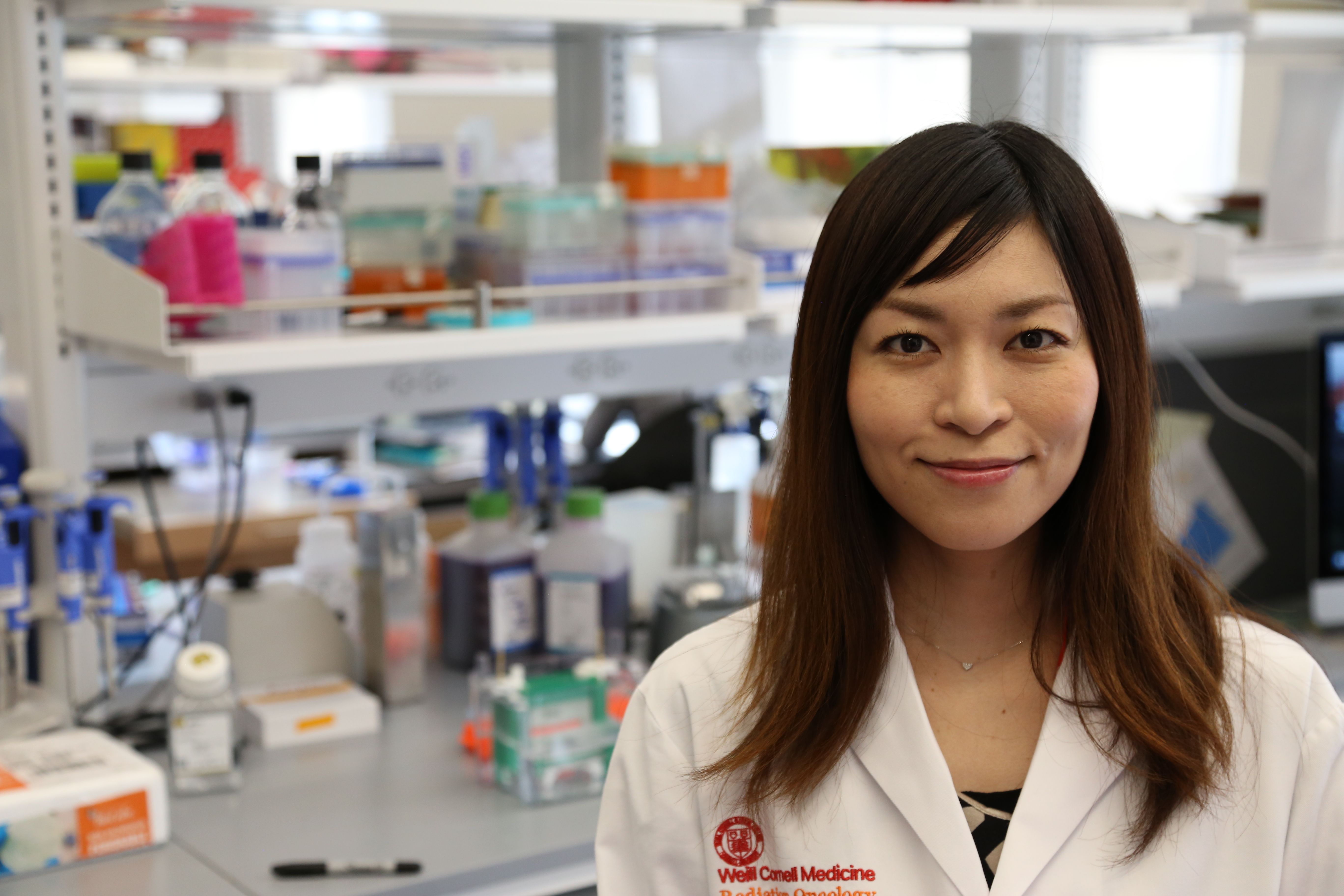
Ai Sato
Research Specialist
Ai is from Japan. She learned biochemistry, molecular biology and developmental biology in University. She worked in RIKEN Brain Science Institute for four years doing research in developmental neuroscience, and then at National Cancer Center Research Institute for nine and a half years working with colon and ovarian cancer stem cells. She moved to the US and joined the Department of Radiation Oncology at Weill Cornell Medicine in July 2018.
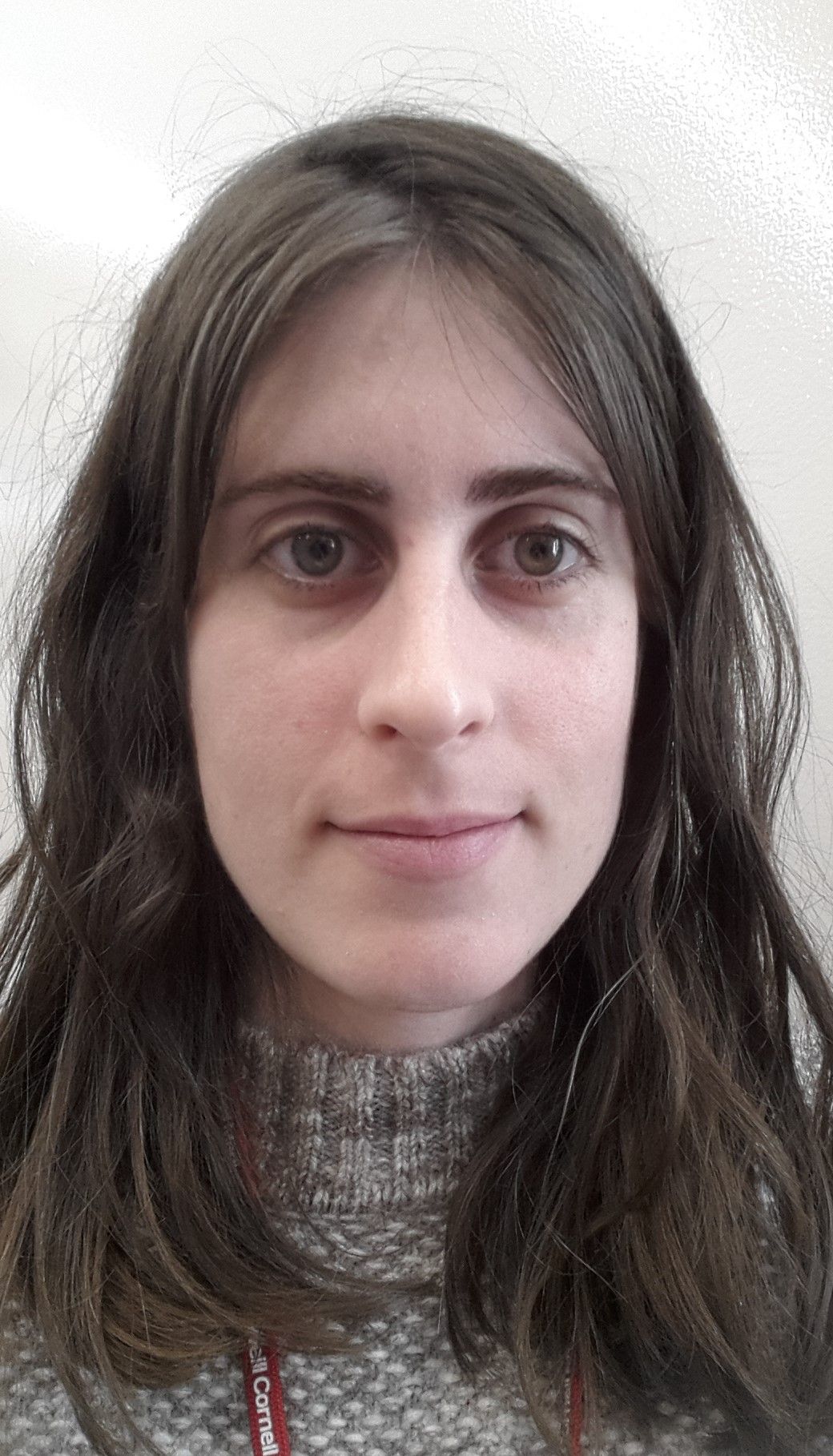
Norma Bloy, PhD
Post-Doctoral Associate
Norma received her master’s degree in Health Biology from Paris Saclay. In 2013, she joined the laboratory of Dr. Guido Kroemer at the Centre de Recherche des Cordeliers (Paris, France) and at Gustave Roussy (Villejuif, France), the largest center for oncological patients in Europe. She worked on several projects linked to immunosurveillance, culminating with her obtaining her PhD in 2017 with an original work on “Immunogenic stress and death of cancer cells: Contribution of antigenicity vs adjuvanticity to immunosurveillance”. Norma is now a post-doctoral fellow in the Department of Radiation Oncology at Weill Cornell Medical College (New York) in Dr. Lorenzo Galluzzi’s group, where she works on PD-1 resistance, in a breast cancer model.
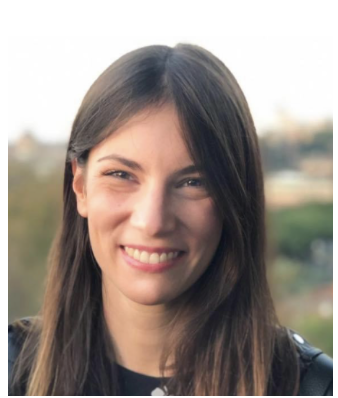
Claudia Galassi, PhD
Post-Doctoral Associate
Claudia Galassi obtained her M.Sc (in Biomedical Sciences in 2017) from Universita’ degli Studi di Roma “Tor Vergata” (Rome, Italy) and PhD (Oncological Sciences, 2021) from Catholic University of Sacred Hearth of Rome, Italy. Her PhD has been focused on immunogenicity and chromosomal instability of cancer stem cells. Claudia is now a post-doctoral associate in the Department of Radiation Oncology at Weill Cornell Medical College (New York) in Dr. Lorenzo Galluzzi’s group.
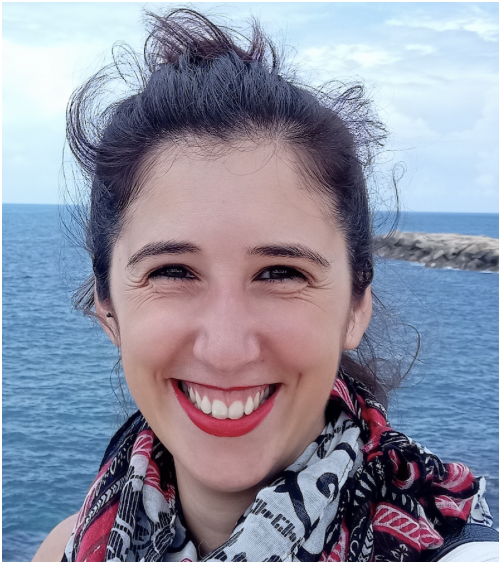
Cristina Iribarren
Research Specialist
Cristina joins the department as a Research Specialist in Galluzzi Lab. Before that, she worked in the laboratory of Dr. Isabelle Cremer at Centre de Recherche des Cordeliers (Paris, France) and received her master’s degree in Life and Earth Science from EPHE Paris in 2016. After that, she worked in the laboratory of Dr. Guido Kroemer at the Centre de Recherche des Cordeliers (Paris, France) and at Gustave Roussy (Villejuif, France), the largest center for oncological patients in Europe and in the Centro de Investigacion Medica Aplicada under the supervision of Dr. Juan Jose Lasarte in Pamplona, Spain.
She also worked in EverImmune (Paris, France) under the supervision of Dr. Romain Daillere and in the CRO TransCure bioServices (Archamps, France). In those laboratories, she worked on several projects to developing and optimizing novel techniques for in vivo models.

Ruth Soler Agesta, MSc
Visiting Graduate Assistant
Ruth joins the department as a Visiting Graduate Assistant in Galluzzi Lab, where she is investigating the role of mitochondrial damage in immunogenic cell death. Prior to joining the Galluzzi Lab, she enrolled as a Ph.D. Student at the Department of Biochemistry at the University of Zaragoza (Spain; 2019) after receiving her B.Sc. in Biology from the University of Mons (Belgium; 2012-2015) and her M.Sc. in Biochemistry and Molecular and Cell Biology from the University of Zaragoza (Spain; 2017) and Research in Health Sciences from the University of San Jorge (Spain; 2019). Ruth has a long-standing interest in the role of mitochondria and metabolism in tumor progression and metastasis.
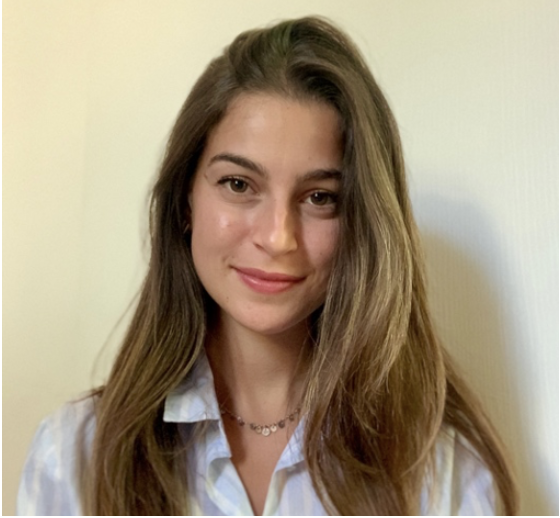
Ginevra Campia, MSc
Visiting Graduate Assistant
Ginevra joins the department as a Visiting Graduate Assistant in Galluzzi Lab. Prior to joining the Galluzzi Lab Ginevra worked as Research Fellow with the Vitale Lab at Candiolo Cancer Institute (Turin, Italy; 2022-2023) after obtaining her M.Sc. in Cellular and Molecular Biology (2022) from University of Turin (Italy).
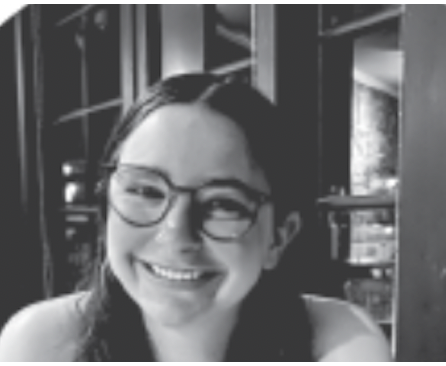
Millie Nathanson
High School Intern
Millie Nathanson is a student from the Packer Collegiate Institute (Brooklyn, New York), joined the Galluzzi Lab as a Volunteer/Intern.
Original Articles
- Yamazaki, T., Kirchmair, A., Sato, A. et al. Mitochondrial DNA drives abscopal responses to radiation that are inhibited by autophagy. Nat Immunol, 2020. 21(10); p. 1160-1171.
- Buqué, A., Bloy, N., Perez-Lanzón, M. et al. Immunoprophylactic and immunotherapeutic control of hormone receptor-positive breast cancer. Nat Comm, 2020. 11(1): p. 3819.
- Truxova, I., Kasikova, L., Salek, C. et al. Calreticulin exposure on malignant blasts correlates with improved NK cell-mediated cytotoxicity in AML patients. Haematologica, 2020. 105(7): p. 1868-1878.
- Yamazaki, T., Buqué, A., Ames, T.D. and L. Galluzzi. PT-112 induces immunogenic cell death and synergizes with immune checkpoint blockers in mouse tumor models. Oncoimmunology, 2020. 9(1): p. e1721810.
- Kasikova, L., Hensler, M., Truxova, I. et al.. Calreticulin exposure correlates with robust adaptive antitumor immunity and favorable prognosis in ovarian carcinoma patients. J Immunother Cancer, 2019. 7(1): p. 312.
- Rodriguez-Ruiz, M.E., Buqué, A., Hensler, M. et al. Apoptotic caspases inhibit abscopal responses to radiation and identify a new prognostic biomarker for breast cancer patients. Oncoimmunology, 2019. 8(11): p. e1655964.
- Bravo-San Pedro, J.M., Sica, V., Martins, I. et al. Acyl-CoA-binding protein is a lipogenic factor that triggers food intake and obesity. Cell Metabol, 2019. 30(4): p. 754-767.e7.
- Fucikova, J., Rakova, J., Hensler, M. et al. TIM-3 dictates functional orientation of the immune infiltrate in ovarian cancer. Clin Cancer Res, 2019. 25(15): p. 4820-4831.
- Tatsuno, K., Yamazaki, T., Hanlon, D. et al. Extracorporeal photochemotherapy induces bona fide immunogenic cell death. Cell Death Dis, 2019. 29(10): p. 578.
- Sica, V., Bravo-San Pedro, J.M., Izzo, V. et al. Lethal poisoning of cancer cells by respiratory chain inhibition plus dimethyl a-ketoglutarate. Cell Rep, 2019. 27(3): p. 820-834.e9.
- Pabla, S., Conroy, J.M., Nesline, M.K. et al. Proliferative potential and resistance to immune checkpoint blockade in lung cancer patients. J Immunother Cancer, 2019. 7(1): p. 27.
- Conroy, J.M., Pabla, S., Nesline, M.K. et al. Next generation sequencing of PD-L1 for predicting response to immune checkpoint inhibitors. J Immunother Cancer, 2019. 7(1): p. 18.
- Marchi, S., Corricelli, M., Branchini, A. et al. Akt-mediated phosphorylation of MICU1 regulates mitochondrial Ca2+ levels and tumor growth. EMBO J, 2019. 38(2): p. e99435.
- Truxova, I., Kasikova, L., Hensler, M. et al. Mature dendritic cells correlate with favorable immune infiltrate and improved prognosis in ovarian carcinoma patients. J Immunother Cancer, 2018. 6(1): p. 139.
- Morrison, C.D., Pabla, S., Conroy, J.M. et al. Predicting response to checkpoint inhibitors in melanoma beyond PD-L1 and mutational burden. J Immunother Cancer, 2018. 6(1): p. 32.
- Bonora, M., Morganti. M., Morciano, G. et al. Mitochondrial permeability transition involves dissociation of F1FO ATP synthase dimers and C-ring conformation. EMBO Rep, 2017. 18(7):1077-1089.
- Fucikova, J., Truxova, I., Hensler, M. et al. Calreticulin exposure by malignant blasts correlates with robust anticancer immunity and improved clinical outcome in AML patients. Blood, 2016. 128(26): p. 3113-3124.
Review Articles
- Petroni, G., Buqué, A., Zitvogel, L., Kroemer, G. and L. Galluzzi. Immunomodulation by targeted anticancer agents. Cancer Cell, 2021. IN PRESS.
- Galluzzi, L., Humeau, J., Buqué, A., Zitvogel, L. and G. Kroemer. Immunostimulation by chemotherapy in the era of immune checkpoint blockers. Nat Rev Clin Oncol, 2020. 17(12): p. 725-741.
- Petroni G., Formenti, S.C., Chen-Kiang, S. and L. Galluzzi. Immunomodulation by anticancer cell cycle inhibitors. Nat Rev Immunol, 2020. 20(11): p. 669-679
- Marchi, S., Giorgi, C., Galluzzi, L. and P. Pinton. Ca2+ fluxes and cancer. Mol Cell, 2020. 78(6): p.1055-1069.
- Galluzzi, L., Vitale, I., Warren, S. et al. Consensus guidelines for the definition, detection and interpretation of immunogenic cell death. J Immunother Cancer, 2020. 8(1): p. e000337.
- Rodriguez-Ruiz, M.E., Vitale, I., Harrington, K.J., Melero, I. and L. Galluzzi. Immunological impact of cell death signaling driven by radiation on the tumor microenvironment. Nat Immunol, 2020. 21(2): p. 120-134.
- Vanpouille-Box, C., Hoffmann, J.A. and L. Galluzzi. Pharmacological modulation of nucleic acid sensors – Therapeutic potential and persisting obstacles. Nat Rev Drug Discov, 2019. 18(11): p. 845-867.
- Deutsch, E., Chargary, C., Galluzzi, L. and G. Kroemer. Optimising efficacy and reducing toxicity of anticancer radioimmunotherapy. Lancet Oncol, 2019. 20(8): p. e452-e463.
- Galluzzi, L., and D.R. Green. Autophagy-independent functions of the autophagy machinery. Cell, 2019. 177(7): p. 1682-1699.
- Vitale, I., Manic, G., Coussens, L.M., Kroemer, G. and L. Galluzzi. Macrophages and metabolism in the tumor microenvironment. Cell Metab, 2019. 30(1): p. 36-50.
- Bonora, M., Wieckowski, M.W., Sinclair. D.A. et al. Targeting mitochondria for cardiovascular disorders: therapeutic potential and obstacles. Nat Rev Cardiol, 2019. 16(1): p. 33-55.
- Galluzzi, L., Yamazaki, T. and G. Kroemer. Linking intracellular adaptation to stress with organismal homeostasis. Nat Rev Mol Cell Biol, 2018. 19(11): p. 731-745.
- Galluzzi, L., Chan, T., Kroemer, G., Wolchok, J.D. and A. López-Soto. The hallmarks of successful anticancer immunotherapy. Sci Transl Med, 2018. 10(459): p. eaat7807.
- Vanpouille-Box, C., Demaria, S., Formenti, S.C. and L. Galluzzi. Cytosolic DNA sensing in organismal tumor control. Cancer Cell, 2018. 34(3): p. 361-378.
- Galluzzi, L., Vanpouille-Box, C., Bakhoum, S.F. and S. Demaria. SnapShot: CGAS-STING signaling. Cell, 2018. 173(1): p. 276–276.e1.
- Rybstein, M.D., Bravo-San Pedro, J.M., Kroemer G. and L. Galluzzi. The autophagic network and cancer. Nat Cell Biol, 2018. 20(3): p. 243-251.
- Galluzzi, L., Vitale, I., Aaronson, S.A. et al. Molecular mechanisms of cell death: Recommendations of the Nomenclature Committee on Cell Death 2018. Cell Death Differ, 2018. 25(3): p. 486-541.
- Carmona-Gutierrez, D., Bauer, M.A., Zimmermann, A., et al. Guidelines and recommendations on yeast cell death nomenclature. Microb Cell, 2018. 5(1): p. 4-31.
- Bantug, G., Galluzzi, L., Kroemer, G., and C. Hess. The spectrum of T cell metabolism in health and disease. Nat Rev Immunol, 2018. 18(1): p. 19-34.
- López-Soto, A., Gonzalez, S., Smyth, M.J. and L. Galluzzi. Control of metastases by NK cells. Cancer Cell, 2017. 32(2): p. 135-154.
- Galluzzi, L., Baehrecke, E.H., Ballabio, A. et al. Molecular definitions of autophagy and related processes. EMBO J, 2017. 36(13): p. 1811-1836.
- Galluzzi, L., Bravo-San Pedro, J.M., Levine, B., Green, D.R. and G. Kroemer. Pharmacological modulation of autophagy: therapeutic potential and persisting obstacles. Nat Rev Drug Discov, 2017. 16(7): p. 487-511.
- Vitale, I., Manic, G., De Maria, R., Kroemer, G. and L. Galluzzi. DNA damage in stem cells. Mol Cell, 2017. 66(3): p. 306-319.
- Galluzzi, L., Bravo-San Pedro, J.M., Demaria, S., Formenti, S.C. and G. Kroemer. Activating autophagy to potentiate immunogenic chemotherapy and radiation therapy. Nat Rev Clin Oncol, 2017. 14(4): p. 247-258.
- Galluzzi, L., Kepp, O., Chan, F.K. and G. Kroemer. Necroptosis: Mechanisms and relevance to disease. Annu Rev Pathol, 2017. 12: p. 103-130.
- Galluzzi, L., Buqué, A., Kepp, O., Zitvogel, L. and G. Kroemer. Immunogenic cell death in cancer and infectious disease. Nat Rev Immunol, 2017. 17(2): p. 97-111.
- López-Otín, C., Galluzzi, L., Freije, J.M.P., Madeo, F. and G. Kroemer. Metabolic control of longevity. Cell, 2016. 166(4): p. 802-821.
- Galluzzi, L., Bravo-San Pedro, J.M., Blomgren, K. and G. Kroemer. Autophagy in acute brain injury. Nat Rev Neurosci, 2016. 17(8): p. 467-484.
- Galluzzi, L., López-Soto, A., Kumar, S. and G. Kroemer. Caspases connect cell-death signaling to organismal homeostasis. Immunity, 2016. 44(2): p. 221-231.
- For a complete list of peer-reviewed publications from Lorenzo Galluzzi, please click here
FORMER LAB MEMBERS
